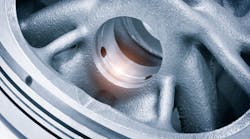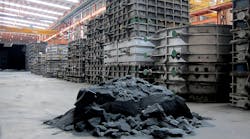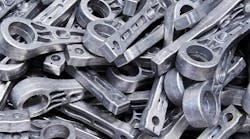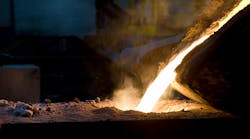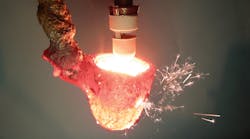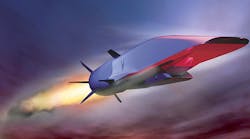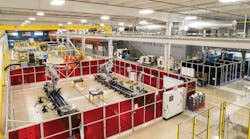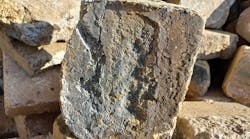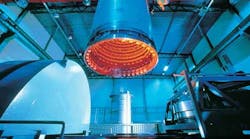Alcoa reported some new details of its supply agreement with Airbus, involving 3D-printed titanium fuselage and engine pylon parts, following a $1-billion deal announced last fall. Without offering a value for the new contract, nor the particular Airbus jet series involved in the supply, Alcoa said the deliveries would begin mid-year.
The supplier emphasized that its portfolio of materials design, various production capabilities, and aerospace product experience, all were decisive factors for Airbus in its contract placement.
According Alcoa chairman and CEO Klaus Kleinfeld. “The unique combination of our multi-material alloy development expertise, powder production capabilities, aerospace manufacturing strength and product qualification know-how position us to lead in this exciting, emerging space.”
Many of the parts will be sourced from Alcoa Titanium & Engineered Products (ATEP), the business unit that consists largely of the RTI International Metals organization that Alcoa purchased last year for $1.5 billion. Those operations include titanium refining, casting, and forming, and 3D-printing capabilities.
For the Airbus program, the ATEP 3DP operation at Austin, TX, will be a important supplier, as will other titanium ingot melting and billet casting, machining, finishing, and inspection capabilities.
The Airbus project also will draw on Alcoa’s CT scanning and hot isostatic pressing (HIP) capabilities at Whitehall, MI. HIP is a thermal forming process in which heat and pressure are applied to cast products (e.g., turbine blades, engine structures) simultaneously under a pressurized atmosphere, in a controlled sequence that aims to improve the mechanical and structural properties of the component.
Last year Alcoa invested $22 million to install a new HIP system at Whitehall, capable of processing the largest jet-engine parts in its portfolio. It calls the Michigan operation one the world’s largest “aerospace HIP technology” complexes.
3DP capabilities are being expanded as well at the Alcoa Technical Center in Pittsburgh, where a $60-million project is in progress. Among the details of that project is a pilot-scale development of Alcoa’s Ampliforge process, in which a part designed and produced using 3D printing is completed using a more standard process, i.e., forging.
It’s notable that several of the operations involved in the Airbus supply program are due to be spun-off b Alcoa to a new “downstream company”, called Arconic, later this year.
